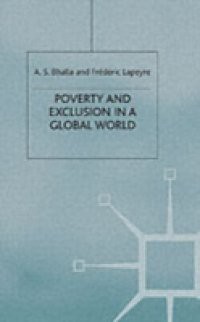This book investigates the notion of social exclusion as a new way to approach issues such as the 'new' poverty - long-term unemployment, precariousness, social polarization and disintegration. Particular attention is paid both to the global relevance of an approach in terms of social exclusion, and also its value compared with more conventional approaches to poverty and deprivation. It is shown that social exclusion goes beyond these by explicitly embracing the relational as well as the distributional aspects of poverty.The authors explore the specific forms of social exclusion in the ongoing processes of globalization, deregulation, the crisis of the welfare state and the rise of individualism. Successive chapters provide an analytical and operational framework that focuses not so much on social exclusion as a state of economic and social deprivation as on the dynamic processes that create such a state and push individuals into precariousness, vulnerability and, finally, exclusion.The book emphasizes that what has been happening to exclusion (as the new social question) is a fundamental question which needs to be posed about the present pattern of development shaped by market forces on a global scale.This second, substantially revised, edition contains a new chapter on the transition economies of Eastern Europe and Central Asia, and thus extends the scope of the book to all the three major groups of countries in the world. It attempts to show whether the nature of poverty and social exclusion is similar in the Western industrialized countries, the transition economies and the developing countries. Substantive new sections have been added on a capability approach to exclusion, on 'social capital' and on the European Union strategy to fight social exclusion.

